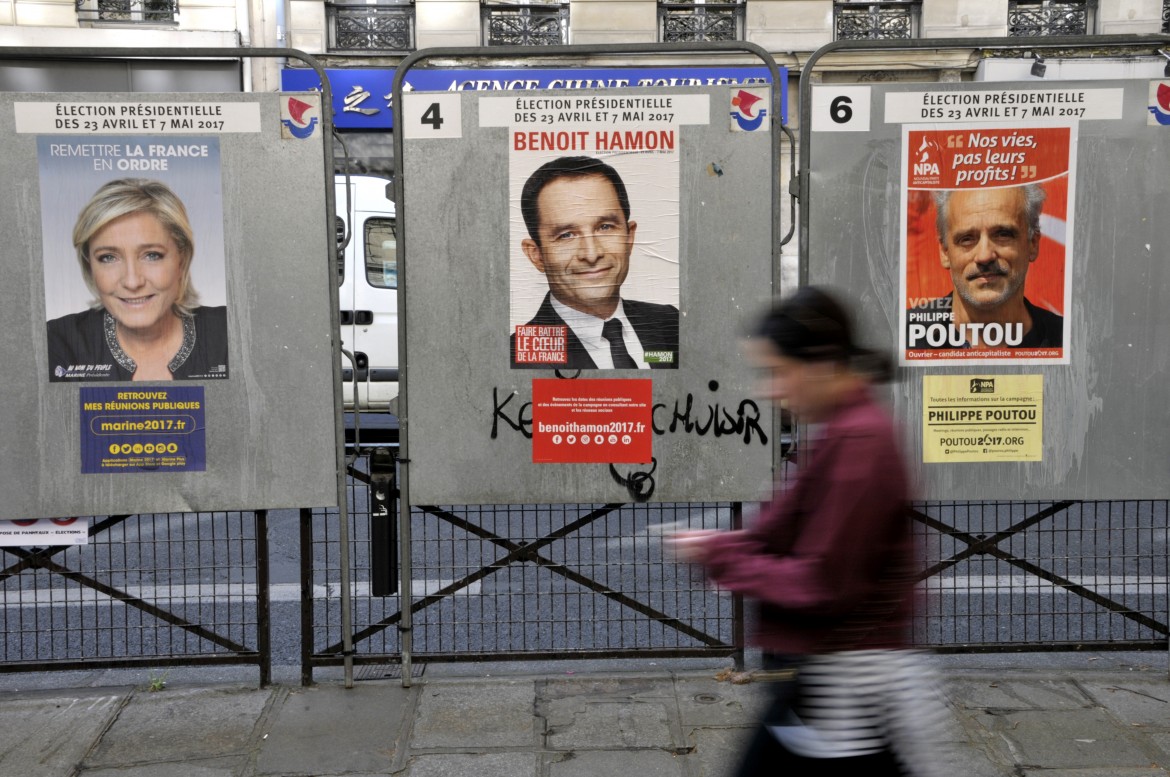Commentary
Macron victory could mean more radical populism
If Macron wins and the status quo continues, it won’t mean the end of European nationalism.

As I write this article, it’s still not clear who won the first round of French presidential elections: the centrist candidate Emmanuel Macron or the xenophobic National Front leader Marine Le Pen. (Update: Macron and Le Pen will head to a runoff election, Macron having taken the majority of first-round votes, followed by Le Pen.)
It would not be a trivial difference because it would show whether the pressure-cooker atmosphere of endemic terrorism and Le Pen’s exploitation of the policeman killed on the Champs-Elysées has paid off in some way, affecting votes. What’s certain is that with voter participation of more than 80 percent, the wave of abstention was halted.
Meanwhile, just an hour and a half after the polls closed, a few events happened that may indicate the direction of the second round of voting scheduled for May 7.
The defeated François Fillon immediately announced his support for Macron “against those who are anti-system.” Mélenchon also spoke, thanking his supporters for the united vote that helped the left to earn almost 20 percent of the vote. But he did not give any instructions for the second round, saying “we do not have this authority.” However, he added significantly that “everyone knows in his or her heart what their own duty is.” The Socialist candidate Benoit Hamon only got 6-7 percent.
In fact, Hamon immediately asked Socialist voters — as the majority have already done — to vote for Macron, adding the slogan “the left is not defeated.” But, despite its efforts, it is difficult to imagine that the “left” will continue with Macron as president.
After waiting two hours, Macron spoke, and as president-elect he basically said nothing but sent the three significant signals, in one direction or another.
The next two weeks will be decisive for Macron to define the style of leadership he’ll propose to the French, offering from the center a rassemblement. Such overtures to vanquished opponents has been used unsuccessfully by the French right over the last 20 years, a rhetoric that “doesn’t ask where you come from but where you are going” — with historic echoes of the Italian center.
He clearly portrayed a vote for Le Pen as a vote for nationalism and against patriotism and the values of helping those less fortunate. And in particular, he restated his vision for a redefined Europe, without explaining exactly how it will be redefined, in a clear electoral campaign style.
Now France is “En Marche!”, which means that Macron’s colorless centrist, neither right nor left, in order to win the presidency in the second round, needs to gather the support of everyone in the system of government and power.
French commentators also argue that the pro-European vote has won, and the euro has been confirmed as Europe’s single currency.
So far, it looks like a poor result. The populist movements, which didn’t have much chance, will come back tougher and stronger if the strategic German-French axis, supported by international banks, is relaunched.
Do not forget that the heaviest endorsement of Macron came from the German finance minister, the liberal Wolfgang Schauble. The European centrist fronts are rejoicing in a European Union which has banned the reference to its social nature and participates in too many wars.
So if anyone thinks that eventually everything must change so that nothing changes, better think again. Let’s look at the vindictive Matteo Renzi in Italy, the vintage Tony Blair in Britain, the Great oxidized coalition in Germany, all behind the “center walker” Emmanuel Macron. They are just fresh fodder for a populism worse than the one now. Even more radical and nationalist strains may develop over the next five years to oppose Europe.
Originally published at https://ilmanifesto.it/segnali-francesi/ on 2017-04-23
